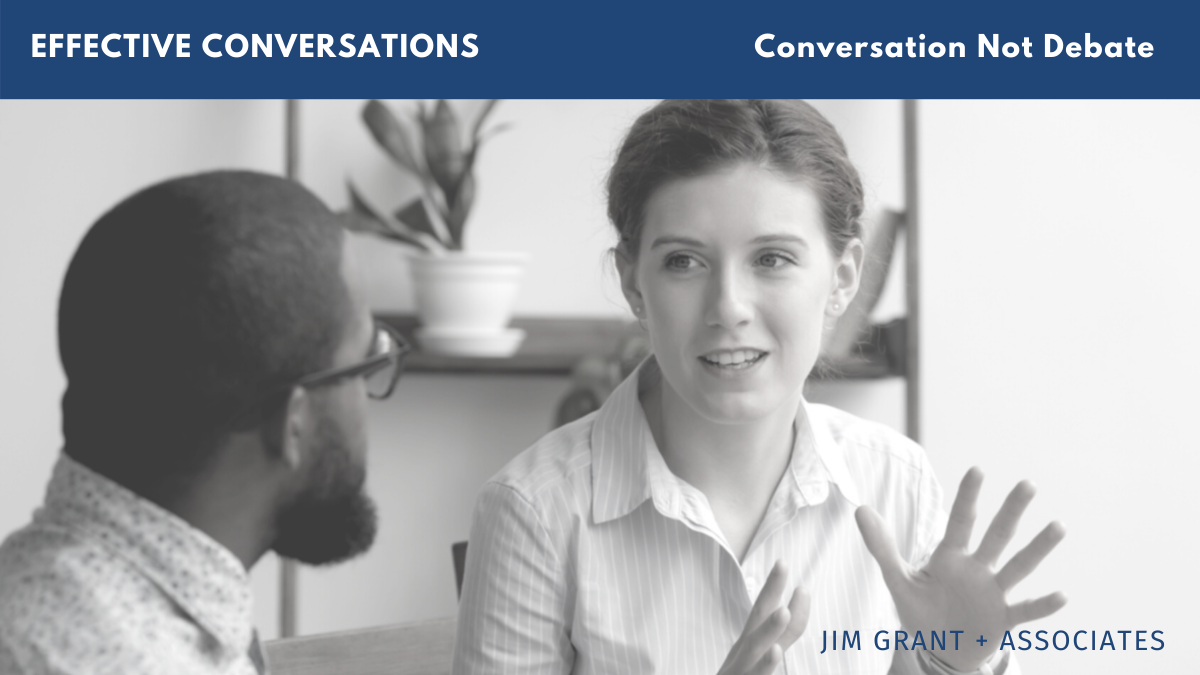Conversation is not debate; in fact, it is its antithesis. Debate, as one would commonly observe, is where one party is there to convince another. At best (often through sheer luck), this can lead to agreement, and with the parties walking away feeling ‘okay’ but not really connected or engaged. Debate can stifle creativity and intuition by its ‘to and fro’, ‘your turn – my turn’ nature. More often than not, this ‘I win, you lose’ approach produces posturing and limited disclosure, and is inherently conflict-based. Effective conversations go beyond the critical skills of listening and questioning, as important as these are. They are a powerful, yet seldom used, form of expression and, in coaching, they can be transformational. Often dialogue is predominantly discussion, based on what is already in our minds, referencing what we have learnt from past experience and bouncing thoughts, views, and opinions in an attempt to see how we each see the world. The art of great conversational skill is critical, yet not simply learnt. You will often face blockers and intrusions, such as defensiveness, conflict aversion and unconscious habitual behaviour, and the nature of interpersonal relationship dynamics, including lack of trust, authenticity, or genuineness.“Debate is the death of conversation.”
Emil Ludwig German writer and biographer (1881 – 1948)
Change, Coaching, Leadership, self awareness
Effective Conversations: Conversation Not Debate
Effective Conversations: Conversation Not Debate
By using the right language, we can exchange thoughtful words that accurately represent the intricacies of thought, emotion, mood, and behaviour. Good conversations can give depth and meaning that can lead to connection, creative mood-sharing, and learning ‘together’. Great conversations, at their core, are a search for the truth with a view to the future, not the past; more about what we are going to do than what we did or how we got there.


